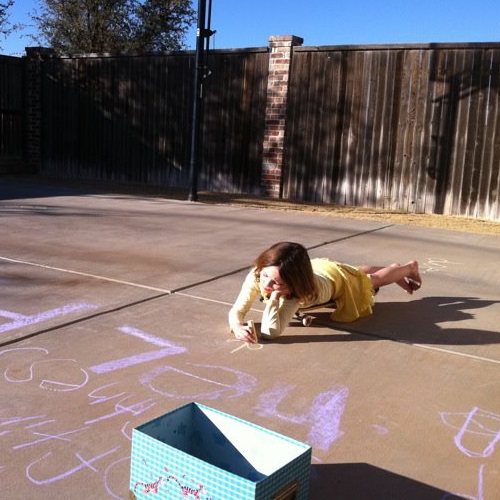What if you ditched the pen and paper?
The temptation when faced with learning challenges is to set up a system to address the problems—a structure that will take the issues seriously and will create benchmarks for measurable progress. This kind of approach feels quite “teacherly” and valid. We (worried parents) trust a system that is incrementally organized with practices that we can use that promise us good results. We cling to it, sometimes, and follow it to the letter.
What happens, though, when a child balks? Your son or daughter won’t do the practices, hates them, cries or whines that the work is boring or too difficult?
Tension escalates and the relationship between you and your child is at risk.
Certainly professional help for kids with diagnosed learning disorders can be quite useful to language-impaired kids. Some materials built from these methodologies may target issues that you didn’t even realize were constitutive to the disorder or challenge your child faces. Naturally, incorporating these tactics and practices is loving and right!
Still, I want to caution you here. The temptation to get very serious about problems and to follow the protocols to the letter is powerful for parents. We want to believe that if we “do it right,” our child will overcome their disorders or learn to cope with their challenges. Once we “get serious,” the space for risk-taking, joy, play, and imagination sometimes go right out the window! We tend to “clamp down” rather than to loosen up!
The most effective way to make progress with struggling learners is to enhance the parent-child bond, not just turn to systems and structure. With trust and affection between you, any process you use can contribute to growth.
That nurturing bond is created between parents and children when the parent understands the child’s need for a couple of things:
Play. Children need to know that you value play, humor, happiness, freedom to explore, jokes, kinesthetic activity.
Breaks. Kids will try almost anything, but they need to know that if it is too stressful, they get to quit, take a break, move away from the process or activity.
Create playful ways to address the issues that are not systematic at all! Perhaps for handwriting, you will use paintbrushes and buckets of water to write messages on the driveway.
What if your child stood behind you, put his arms through to the front as though he is your hands, and you had him open a jar of pickles or try writing your name from that blind position? What if you get him in touch with his body and hands and uses for hands in new ways?
Can he trace words? Can he trace them better if the two of you hold the same pencil and you move gracefully together over the letters—first you controlling his hand, and then he controls your hand?
We are so quick to think all learning happens on paper, with pen, following a set of assignments.
See if you can get outside of this frame of reference—play, take breaks, build trust.
Good luck!
Cross-posted on facebook. Image by Brave Writer mom, Cheryl (cc).


















Julie- this is fabulous advice and a confirmation for me.
My 5th child, a 7 yo boy, has been having increasingly bad issues with anxiety, (it runs strongly in our family so this is so surprise), and also with ADHD.
The other day, things were particularly hard, and instead of reacting to him (he acts out his anxiety with bad behavior), my Mommy instinct took over and I sent him outside to play in the beautiful fall sunshine and ditched school for the rest of the day…an hour or two later after happily “exploring” our yard and with my 4 yo, he was a different kid, smiling and joyful again.
He needed me to recognize that he needed that change of pace, not for me to be harder on him. I finally learned that lesson after having “been there done that” wrongly with my 15 yo who has Asperger’s and ADHD, after years of thinking “if only I clamped down harder on him, he’d get it”.
It never helps me when I am struggling and need understanding for someone to be harder on me….so why would it work for our precious children?
Thanks for the confirmation I needed. Your blog always provides a common sense that isn’t so common anymore in our world!
Nanci
Thanks Nanci! I’m so glad you post here! You are a faithful commenter. You sound like an awesome mom.
Julie